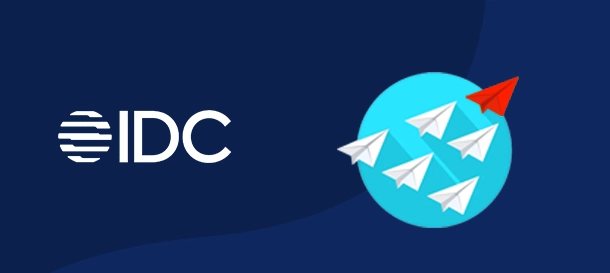In the intricate world of business-to-business (B2B) transactions, managing outstanding debts is crucial for maintaining financial health and ensuring sustainable growth. This comprehensive guide delves into the multifaceted aspects of B2B debt collection, offering insights into its importance, challenges, and effective strategies to optimize recovery processes.
Understanding B2B Debt Collection
B2B debt collection involves the process of recovering unpaid invoices between businesses. Unlike consumer debt collection, B2B collections deal with debts arising from commercial transactions, which often involve larger sums and more complex agreements.
The Importance of Effective B2B Debt Collection
Efficient debt collection is vital for maintaining cash flow, reducing financial risks, and fostering healthy business relationships. Timely recovery of debts ensures that businesses have the necessary resources to operate smoothly and invest in future opportunities.
Challenges in B2B Debt Collection
- Complex Contractual Agreements: B2B transactions often involve detailed contracts with specific terms, making the collection process more intricate.
- Maintaining Business Relationships: Aggressive collection tactics can strain or sever valuable business relationships, necessitating a delicate balance.
- Legal and Regulatory Compliance: Navigating the varying laws and regulations across different jurisdictions adds complexity to the collection process.
Strategies for Effective B2B Debt Collection
- Clear Credit Policies: Establish transparent credit policies outlining payment terms, credit limits, and consequences of non-payment to set expectations upfront.
- Thorough Credit Assessments: Conduct comprehensive evaluations of a client’s creditworthiness before extending credit to mitigate potential risks.
- Timely Invoicing and Follow-Ups: Implement prompt invoicing and systematic follow-ups to encourage timely payments and address delays proactively.
- Negotiation and Mediation: Engage in constructive dialogues to negotiate payment plans or settlements, preserving business relationships while securing payments.
- Utilization of Technology: Leverage advanced accounts receivable management software to automate processes, track payments, and analyze debtor behavior.
Legal Considerations in B2B Debt Collection
- Understanding Jurisdictional Laws: Familiarize yourself with the legal frameworks governing debt collection in relevant jurisdictions to ensure compliance.
- Contract Enforcement: Ensure that contracts are legally binding and enforceable, with clear terms regarding payment obligations and remedies for breaches.
- Alternative Dispute Resolution: Consider arbitration or mediation as cost-effective alternatives to litigation for resolving payment disputes.
International B2B Debt Collection
- Navigating Cross-Border Regulations: Be aware of international laws and cultural differences that may impact the collection process.
- Currency and Exchange Rate Considerations: Address issues related to currency conversion and fluctuating exchange rates in international transactions.
- Engaging Local Expertise: Partner with local collection agencies or legal experts to effectively manage collections in foreign markets.
Preventative Measures to Minimize Bad Debt
- Regular Account Monitoring: Continuously monitor accounts receivable to identify and address potential issues early.
- Client Education: Educate clients about your payment policies and the importance of adhering to agreed-upon terms.
- Incentives for Early Payment: Offer discounts or other incentives to encourage clients to pay invoices ahead of schedule.
How Emagia Transforms B2B Debt Collection
Emagia offers a suite of digital solutions designed to enhance the efficiency and effectiveness of B2B debt collection processes. By integrating advanced analytics, automation, and artificial intelligence, Emagia enables businesses to streamline accounts receivable management, predict payment behaviors, and implement proactive collection strategies. This holistic approach not only accelerates cash flow but also fosters stronger customer relationships through personalized and timely communications.
Frequently Asked Questions
What is the difference between B2B and B2C debt collection?
B2B debt collection involves recovering debts between businesses, often dealing with larger amounts and complex contracts. In contrast, B2C (business-to-consumer) debt collection pertains to debts owed by individual consumers, typically involving smaller amounts and standardized agreements.
How can businesses maintain good relationships during the debt collection process?
Maintaining open communication, employing respectful negotiation tactics, and seeking mutually beneficial solutions can help preserve business relationships during debt collection. It’s essential to approach the process with empathy and professionalism.
What legal actions can be taken if a debtor refuses to pay?
If amicable collection efforts fail, businesses can pursue legal actions such as filing a lawsuit to obtain a judgment against the debtor. It’s advisable to consult with legal professionals to navigate this process appropriately.
How does technology aid in B2B debt collection?
Technology facilitates automation of routine tasks, provides data analytics for informed decision-making, and enhances communication channels, thereby improving the efficiency and success rate of debt collection efforts.
What are the risks of outsourcing debt collection to third-party agencies?
Outsourcing can lead to potential risks such as loss of control over customer interactions and possible damage to business relationships if the third-party agency employs aggressive tactics. It’s crucial to partner with reputable agencies that align with your company’s values and standards.
By implementing these strategies and leveraging innovative solutions like those offered by Emagia, businesses can effectively manage B2B debt collection, ensuring financial stability and fostering enduring partnerships.







